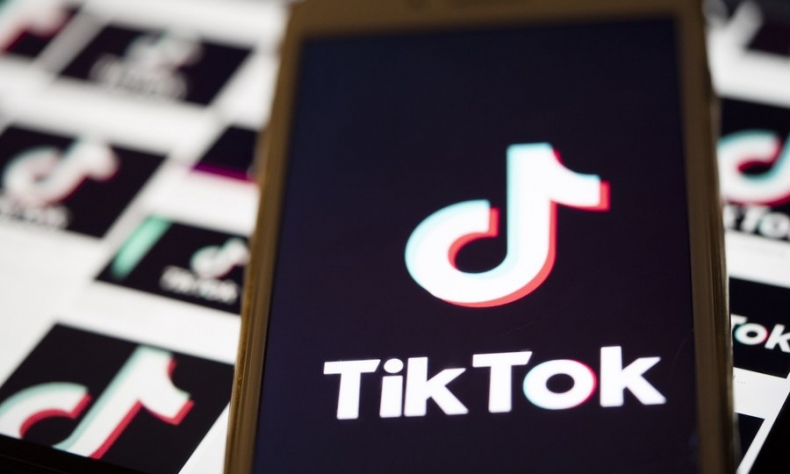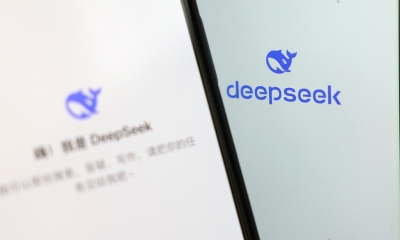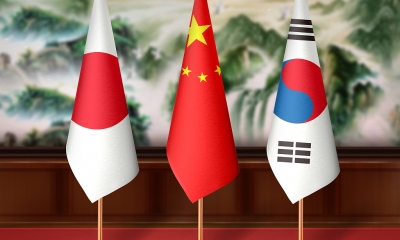A Reasonable Move on TikTok and WeChat by Biden Administration

It should seem ironic to those leaders that the White House is eager to protect its citizens from the alleged prying eyes of the Chinese while it apologizes for spying on its allies.
One day after the U.S. Senate passed the controversial United States Innovation and Competition Act — a bill that critics have identified as having too much anti-China language and policy initiatives contained in it — the White House made an announcement on June 9 that caught many people by surprise.
President Biden said he was killing an executive order signed by his predecessor that was designed to make TikTok and WeChat, both popular Chinese-owned apps, unavailable in the U.S. Donald Trump ordered those apps banned in the U.S., claiming they were collecting “vast swaths” of information and could lead to Americans receiving consistent propaganda supporting the Chinese government. Lawsuits immediately followed, arguing that Americans’ freedom of speech rights were being violated. Those arguments likely would have succeeded in court, a reality not lost on the current president.
According to one estimate, TikTok is used actively every month by roughly 100 million Americans. According to another estimate, roughly 1.5 million Americans actively use WeChat each month. Without a doubt, had the Trump administration been able to ban those apps, many Americans would have been left in the cold and millions of dollars would have been lost by the parent companies of the apps.
So, Americans using TikTok or WeChat should jump for joy because they no longer need to worry about these apps being taken from them, right? Well…not yet.
Yes, the White House revoked Trump’s executive order, but it also announced it would “create a process to scrutinize whether apps controlled by a foreign adversary present risks to U.S. national security and the security of Americans’ sensitive personal data”. If that sounds like political speak, well, it is.
There appears to be no secret here: The White House wants to explore whether there is a way to eliminate the apps from the U.S. marketplace while not running afoul of the law. That seems like a tall order, but, as we know, anything in the U.S. right now that is designed to stand up to China will almost always generate favorable headlines.
Consider what the White House said as it outlined its intentions: “Certain countries, including the People’s Republic of China (PRC), do not share [Western] values and seek to leverage digital technologies and Americans’ data in ways that present unacceptable national security risks while advancing authoritarian controls and interests.”
In other words, China cannot be trusted.

The White House indicates that “the security of Americans’ sensitive personal data” is important. So that leads to an important question: Why not take a careful look at the problems Facebook, as just one example of an American-owned app, has had in this area?
That is not going to happen. The White House review will not include scrutiny of Facebook, which has faced consistent criticism for its privacy shortcomings. Consider just a few examples that legitimately call into question Facebook’s commitment to privacy:
-It has allowed its users’ audio chats to be examined
-Some user profiles have been compromised
-Facebook acknowledged it participated in a scheme that allowed the harvesting of data from almost 90 million of its users
-A number of Facebook-owned apps were sharing with Facebook the health data of some its users
The conclusion: “The security of Americans’ sensitive personal data” matters perhaps only when a Chinese-owned app is being accessed.
Trump, in typical fashion, used a sledgehammer to address this problem. In doing so, and in his usual dictatorial style, he presumed the country and the courts would get in line and support him. He failed. Biden, a far smarter politician, instead is using a scalpel to carefully peel back the many legal and business layers that need to be addressed. He, too, might find banning TikTok and WeChat is a foolish idea, but he will be more deliberate in his effort.
The timing of the White House announcement also might raise eyebrows in Europe, where the president will spend several days attending the G7 summit and meeting with NATO leaders. He also is scheduled to meet Russian president Vladimir Putin. You will recall it was just a few days ago that headlines across the world noted that the National Security Administration had worked with the Danish Defense Intelligence Service from roughly 2012 through 2014 to spy on leaders from multiple Western European nations. It should seem ironic to those leaders that the White House is eager to protect its citizens from the alleged “prying eyes” of the Chinese while it apologizes for spying on its allies.
The article reflects the author’s opinions, and not necessarily the views of China Focus.
 Facebook
Facebook
 Twitter
Twitter
 Linkedin
Linkedin
 Google +
Google +







